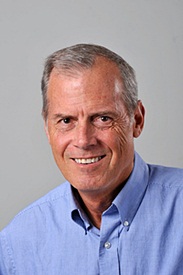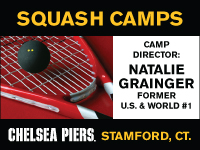
A collaborative novel featuring ten writers.
Complete Novel to Date
THE CLUB FROM HELL
Chapter
EIGHT, by John
Branston
One year, two months, and 23 days from retirement. Hack Thomas had it all figured out. His once promising career as a police officer, derailed by his uncontrollable temper and drinking, was winding up in this small town in New England, busting teenagers for DUI and answering complaints about peeping toms and barking dogs. It paid $900 a week, enough for a single man to live on, and he owed it to sobriety, a sympathetic former partner with a soft spot for burn-out cases, and a connected relative in the Massachusetts Chiefs of Police Association. Wouldn't be long now until he could start collecting his pension and move back to Tennessee.
The phone in his untidy office rang and he reached over to pick it up.
“Davis Barker here, with the behavior evaluation and threat assessment staff over at Aullt. We met last year on that gun scare in our senior dorm. Sorry to wake you up, Hack, but I've got something I want you to look at.”
“Don't tell me. One of your faculty get frisky and jump a student?”
“Fraternizing went out with the Clinton administration. We're all about compliance now. One of our first-year students got an interesting phone call last night. British kid, sent over by his mother and her rich boyfriend. He says it was his twin sister who's been missing for more than a year. She's all excited, blurts out that she's in New York, then it sounds like somebody maybe roughs her up a little and takes the phone away. That's it.”
“Easy enough to trace the call.”
“No, it came in on an old common phone with no digital display and we couldn't run it back. They don't call us old school for nothing.”
“Kid with an overactive imagination? Probably read about the Elizabeth Smart case,” Hack suggested.
“Maybe. We were a little hesitant about taking him as a late admission, but international students help our profile and the guy paying the bills is loaded.”
“Are we talking capital fund endowment?”
“You said that, not me. The boy's name is Sam Smith. He's definitely got a twin sister named Jessica and apparently she disappeared last year. We talked to the mother and she was all excited to hear that her daughter's alive. She said she hasn't seen or heard from the girl since she vanished from a squash club in London. She and her husband are separated, and we haven't talked to him yet. Something about an involuntary commitment to a psych facility.”
Hack tried to focus on the call but his attention was distracted by his retirement calculations and the passing parade outside his window.
“My hearing's not what it used to be,” he said, and in truth it wasn't. “Did you say something about a pub?”
“No, squash club. The sport. As in racquets and balls. We have some courts here. After talking to the kid and his mother half the night I'd say that calling the family dysfunctional would be polite. Sam might be the only normal one in the bunch. The whole convoluted yarn is about people whose lives revolve around squash.”
“I think I saw it on television once in the Olympics.”
“Actually you didn't, but that's not important. What I want you to do is talk to an investigator the mother and her boyfriend have hired. This is a little out of my league and I need some help. We don't know quite what to believe, but we have to take everything seriously since Virginia Tech and Aurora. If it turns out to be a runaway or a domestic he-says-she-says then it's not our problem. But the kid was pretty shook up. He seems to think he might be in danger himself. Frankly, I think he's short-changing us on the story. If he gets dragged into a criminal case then we want to – make that have to – cooperate. We'd like to keep ahead of the curve. And for now at least we'd rather none of this got out.”
Hack glanced at the small pile of arrest tickets and reports on his desk and the partially completed solitaire game on his computer screen. Aullt was full of stuffed shirts, but he remembered Barker as a straight shooter and a good guy.
“What's the investigator's name?” he asked.
“Angus Murray. The mother says he's been working on the girl's disappearance for quite a while. Supposed to have worked for Scotland Yard back in the day.”
“Right. And I'm James Bond. What's the number?”
“Thanks, Hack. I owe you. Remember the five-hour time difference. I hear the Brits take their sleep seriously. Oh, and ask him to tell you the story about the handy man and the air conditioner.”
“The what?”
“Just make the call.”
Hack sighed and took down the number and said good-bye. He took a marker and scrawled “Jessica Smith” and “kidnapping?” and “Sam Smith, Aullt” on a note pad. As an afterthought, he wrote “hair conditioner”. A woman with an impatient look on her face was standing on the other side of the counter outside his office. Duty calling. With no aces up, the solitaire game looked like a loser anyway.
One block from the police station, Bianca Phipps was leaving work at the Weekly Scene. That such a relic from the age of print newspapers existed at all was due to Tom McFadden, a former editor and Pulitzer finalist at the Boston Globe. Like everyone else old enough to remember Carl Yastrzemski, he had been offered a buyout five years ago. He took it, but was bored stiff after a month and used the cash, a loan, and a promise to buy the Scene. Bianca Phipps, a college dropout, came to see him the first week. She wore sneakers, jeans, and a Wellesley t-shirt and had a ring in her nose, a green streak in her blonde hair, and a self-assurance that was disturbing.
She was the perfect hire, equal parts charm and guile. She could write, take pictures, size people up, ask the right question at the right time and get an answer so honest it would surprise even the person saying it. She could fix computers, program them, or, McFadden suspected, hack into them. She shared his disdain for social media but, unlike him, understood them and used them. If he was lucky, she would stay with him another six months, tops.
“I'm headed out,Tom,” she said with a wave. “I'll see if Hack's got anything before I go home.”
John Smith was no longer in the psychiatric facility. Even British health care has its limits, and after several months his therapist decided that he was no threat to himself or anyone else. Too much Mobic mixed with alcohol and anger. The disappearance of his daughter Jessica, the break-up of his marriage, the unlucky Walter and his bulldog daughter, the fiasco with the public liability policy, it was too much for any man. Had it only been a couple of years since he and Jill had won the lottery and bought the club and were grooming the twins for squash tournaments as if that was a big deal?
Thinking of Jill could throw John into one of the black moods his therapist warned him about. Her bitchy remarks to him about his forgetfulness and incompetence. The flirty conversations with the male players, even old Gerry sometimes. And the rich Harvard prick she had finally left him for. An old flame. Probably had to get in line for his shot.
Easy boy, don't go there, John reminded himself. Some day he would fix all of their asses but today he had a game with Gerry. Court therapy, John called it. During the long nights in the psych ward, he had put himself to sleep by closing his eyes and imagining a younger version of himself hitting rail after rail tight against the backhand wall. But Gerry could be a pain in the ass to play. With Walter dead, he'd had a hard time getting a game. Of course John wasn't on anyone's call list either these days, so he swallowed his pride and called the old bugger, who actually sounded glad to hear from him.
When John walked in the Vale Squash Club, Stephanie, the girl at the front desk, gave him a fake-looking smile.
“Hello, Mr. Smith. Nice to see you back,” she said, wondering how he had the nerve to show himself.
Two women checking in looked up at him, exchanged looks, and edged toward the locker rooms. At the snack bar, another woman and a man that John vaguely remembered pretended not to see him. They said something to each other and laughed. The lobby was freshly painted and carpeted, with flat-screen televisions in a new lounge. There was a flyer on a table announcing an upcoming exhibition match with John White and Peter Nicol. John and Jill had never been able to attract even second-tier pros. The court where Frank the Fuck-Up inadvertently set the fatal trap for old Walter had been thoroughly cleaned and given a new floor. The cleaned glass, fresh towels, and the smack of so many balls against walls and so many pairs of gum soles squeaking on newly sanded floors practically screamed “Under New Management.”
Gerry was waiting outside Court Two. He got up to shake John's hand, which was more than anyone else had done.
“Good to see you again,” he said. “You don't look so bad after your little vacation. Lost a few pounds?”
Same old Gerry. Get right to the point and put the needle in at the same time.
“Yes, but I wouldn't recommend it. You still having your way with arthritic old men and innocent young ladies?
So it went, back and forth, as they walked into the court and warmed up. After the third game, John began to wonder if he had made a mistake. Gerry was killing him. Insufferable even when he was winning, Gerry had an annoying way of saying “good hustle” when his opponent missed a shot. Or “Nice shot, lucky prick,” which he thought was hilarious. He had been playing for 40 years but acted like he had never heard the word “clear.” He'd plant himself in the front corners, stick his butt out, hold his shot, and take a roundhouse backswing that would take your head off if you got too close. When John got a sitter near the front wall, Gerry would invariably run into him even if he had no chance on the ball. “Just a let, please,” he would say as he turned his back.
When John protested, Gerry muttered something about “your mind is not quite right.” But John didn't snap then. Instead he walked off the court. He snapped a minute later.
“You quitting on me?” Gerry whined. “Hell, Jill hits harder than you do.”
John froze for a few seconds, then took a racquet out of his bag, a top-of-the-line Black Knight that cost him 150 pounds. He sized up the smirking face in front of him. Grinning like a maniac, he wound up and hit the sweetest overhead he had hit in years.
“Harder than that, son of a bitch?”
About the Author

JOHN BRANSTON began playing squash just before turning 50 after many years of tennis and racquetball. He plays three or four times a week and hopes to play all of his fellow authors on their home courts. Originally from Michigan, he and his wife Jenny live in Memphis, where he is columnist for Memphis magazine and the Memphis Flyer, a freelance reporter for national news media, and author of the book Rowdy Memphis. He blogs about racquet sports (A Fan's Notes) at memphisflyer.com.
Next Up: Chapter NINE by The Squashist
More About This Project
Back To Main


